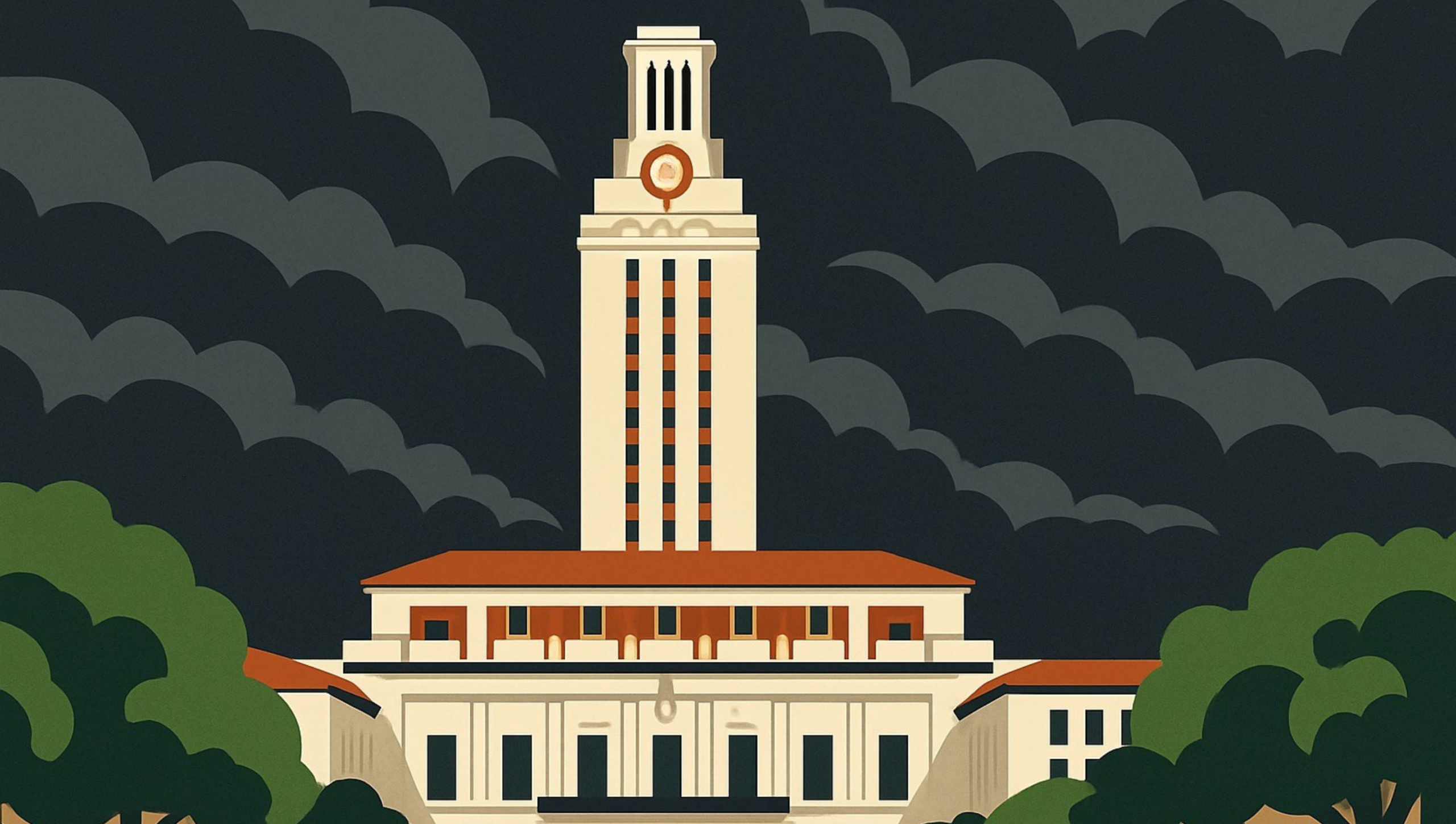Tuesday, Lt. Gov. Dan Patrick announced his intention to make the current Senate Committee on Higher Education a sub-committee of the Senate Committee on Education in the upcoming 88th legislative session.
In preparation for such a thing and in response to current members of the State Senate not seeking reelection, Patrick appointed State Sen. Brandon Creighton (R-Conroe) to be the new chairman of the Senate Education Committee. Creighton had previously served as the chairman of the Senate Committee on Higher Education. He has a career rating of a B+ on the Fiscal Responsibility Index and was first elected to the State Senate in 2014, having previously served in the House of Representatives since 2007.
This decision likely has implications for legislative efforts related to school choice, college professor tenure, and both public school and higher education social studies curricula in the coming legislative session. All of these issues have recently been highlighted as priorities of Patrick.
Creighton has historically supported legislative efforts for school choice. He also authored unsuccessful legislation in the 87th legislative session that would have changed the requirements for comprehensive performance evaluations of tenured college faculty to 4 years from 6 years. He also previously authored similar legislation to another which ultimately passed instead, addressing social studies curriculum in public schools in efforts to thwart the teaching of Critical Race Theory.
In making the change, Patrick said,
“Now more than ever, we must examine education needs as a continuum, from the earliest grades through post-secondary education. The vast majority of jobs in Texas require students to continue their education beyond high school and there should be a seamless path throughout the educational experience.”
Creighton responded to news of his appointment by saying,
“I want to thank Lieutenant Governor Patrick for this appointment and I look forward to the great work ahead as we expand opportunity and value for millions of students in Texas schools. The joining of these two committees has far-reaching impact, as they make up 53% of general revenue in the budget, but more importantly, will chart a path forward for a robust, strong and diverse 21st century economy.”
The Senate Committee on Education had previously been chaired by outgoing State Sen. Larry Taylor (R-Friendswood) since the 84th legislative session in 2015. Taylor, who has a career rating of a B- on the Fiscal Responsibility Index, was first elected in 2009.
Significant Portion of the State Budget
Education spending makes up over half of the whole Texas Biennial State Budget.
In the wake of the COVID-19 pandemic and in response to a significant increase in parents finding other educational options for their children for reasons of dissatisfaction with the quality of the curriculum, it is unclear whether the response by state appropriators will be to appropriate additional funds to public education, in spite of a decline in enrollment.
Creighton will now be overseeing the committee whose jurisdiction spans how that money is allocated in different respects as well as legislation directing a litany of educational priorities for both K-12 public education and higher education.
A Renewed Effort for School Choice
In January, Patrick reaffirmed his public support for school choice,
“The governors in, and I’m in. What’s the problem with the third arm of the Legislature? When the governor, the lieutenant governor, and the speaker are all on the same page, it gets done…. It’s a new day. We have a new speaker. Let’s see what happens.”
Texas Gov. Greg Abbott also gave a similar nod to school choice efforts in January saying,
“This upcoming session… you’re going to see a stronger, swifter, more powerful movement advocating school choice than you’ve ever seen in the history of the state of Texas.”
Patrick highlights what he deems as the problem with school choice efforts in the past, being that of the House of Representatives. In 2017, both Patrick and Abbott supported school choice legislation that would have created tax-credit scholarships and education savings accounts. That legislation passed the Senate but was never considered in the House of Representatives. Similarly, tax credit scholarship legislation passed the Senate in 2015 but also failed to get a hearing in the House of Representatives. Notably, the House Speaker during that time was State Rep. Joe Straus (R-San Antonio).
In 2019, State Rep. Dennis Bonnen (R-Lake Jackson) was the House Speaker. Under his leadership, no school choice legislation was considered by the House of Representatives.
In 2021, the House elected the current Speaker of the House Dade Phelan (R-Beaumont). Under his leadership, the only vote in the House on the issue of School Choice was on a budget amendment authored by Democrat State Rep. Abel Herrero (Robstown) which stipulated that money appropriated in the budget “may not be used to pay for or support a school voucher, education savings account, or tax-credit scholarship program or a similar program through which a child may use state money for nonpublic primary or secondary education.” The amendment was successful and passed by a vote of 115 in favor to only 29 in opposition. Over half of the House Republican Caucus voted against school choice in spite of the issue being a long-time legislative priority of the Republican Party of Texas. Despite the legislature and every statewide elected office being controlled by Republicans for nearly two decades, efforts have thus far been unsuccessful.
A 2022 Republican Primary Election ballot proposition passed with the overwhelming support of Republican primary voters. The ballot proposition read:
“Texas parents and guardians should have the right to select schools, whether public or private, for their children, and the funding should follow the student.”
Nearly 88% of Republican primary voters supported the proposition.
In June of 2021, the American Federation for Children responded to polling released from RealClear Opinion Research which showed that 74% of voters support school choice.
The CEO of the American Federation for Children said,
“Public support for school choice is at an all-time high. And, as the nation recovers from unprecedented, nationwide school closures, a new story is unfolding. Parents are rising up and demanding the freedom to choose the best educational environment for their children. Thankfully, more and more lawmakers are listening. Already in 2021, seventeen states have passed legislation to improve, expand, or create new school choice programs.”
Will Texas lawmakers respond accordingly?




